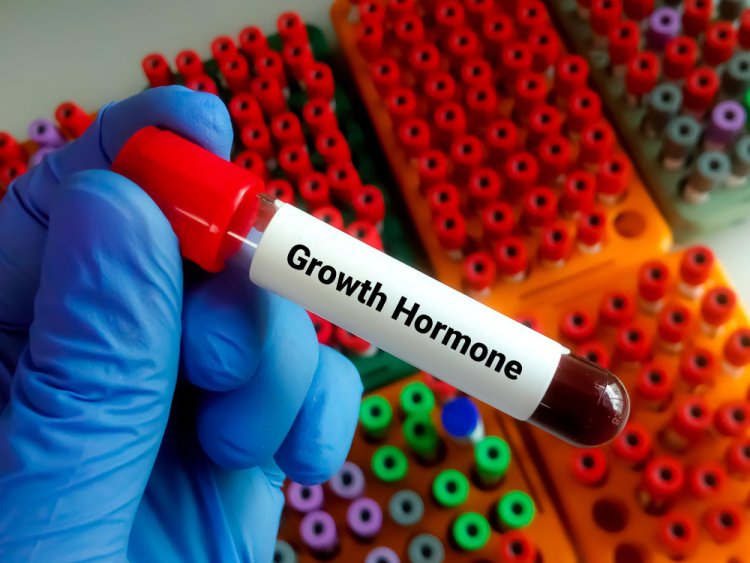Growth Hormone: The Key to Optimal Health and Performance
Growth hormone (GH), also referred to as somatotropin, is a peptide hormone essential for various physiological processes, prominently in the growth and development of children and adolescents. Produced by the pituitary gland, GH orchestrates growth by stimulating the production of insulin-like growth factor 1 (IGF-1) in the liver and other tissues. While its primary role is associated with growth, GH continues to exert significant influence on metabolism, body composition, and overall health throughout life.

Functions of Growth Hormone
Stimulating Growth: During childhood and adolescence, GH promotes longitudinal bone growth by stimulating chondrocyte proliferation and differentiation in the growth plates of bones. This process results in increased height and bone length.
Regulating Metabolism: GH plays a crucial role in metabolism by promoting lipolysis, the breakdown of fats, and inhibiting glucose uptake by cells. Consequently, GH increases blood glucose levels, ensuring an adequate energy supply for various physiological processes.
Supporting Organ Function: Beyond its effects on growth, GH maintains the function and integrity of vital organs such as the heart, kidneys, and liver. It also influences the maintenance of healthy muscle mass and connective tissue.
Enhancing Cell Growth and Repair: GH stimulates cell growth and regeneration in diverse tissues, including muscle, skin, and internal organs. This property facilitates tissue repair and regeneration, contributing to overall health and well-being.
Symptoms of Growth Hormone Deficiency
Growth hormone deficiency (GHD) results from inadequate GH production by the pituitary gland. Manifestations of GHD vary depending on the age of onset and severity but may include:
- Delayed Growth
- Reduced Muscle Mass
- Increased Fatigue
- Impaired Cognitive Function
- Changes in Body Composition
Diagnosis and Treatment
Diagnosing GHD involves a comprehensive evaluation, including physical examination, growth monitoring, and laboratory tests to assess GH levels. Treatment typically entails growth hormone replacement therapy, involving regular injections of synthetic GH to restore normal growth and alleviate symptoms.
In summary, growth hormone plays a multifaceted role in growth, metabolism, and overall health, with deficiency leading to various physiological and developmental abnormalities. Timely diagnosis and appropriate management of GHD are essential to optimize outcomes and improve the quality of life for affected individuals. Ongoing research into the mechanisms of GH action and therapeutic interventions holds promise for advancing our understanding and treatment of growth disorders.
Disclaimer:
The information provided in this article is for educational purposes only and should not be considered medical advice. If you have any health concerns or are experiencing symptoms, it is important to consult with a healthcare professional, such as a doctor or clinic, for proper diagnosis and treatment. Always seek the advice of your doctor or other qualified health provider with any questions you may have regarding a medical condition. Do not disregard professional medical advice or delay in seeking it because of something you have read in this article.
What's Your Reaction?





















